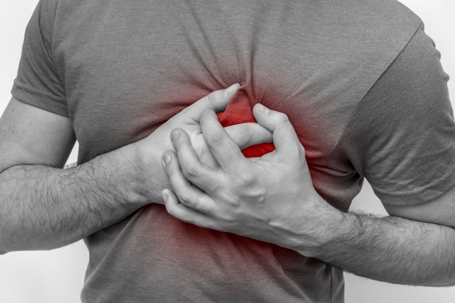Panic attacks and heart attacks share some frightening similarities, and many who are in the throes of intense anxiety feel as though they’re going to die. There is also some overlap in symptoms, as those who are in the midst of having a heart attack can start to panic. Knowing the difference between a panic attack and a heart attack can save a life. There are distinct symptoms. Unfortunately, many can’t tell the difference between the two if they’ve never experienced symptoms of either before. It’s important to note, though, that a panic attack cannot cause a heart attack. A heart attack is caused by the blockage in the blood vessels to the heart.
Overlapping symptoms of a panic attack and a heart attack include:
- Sharp pain in the chest
- Shortness of breath
- Sweating
The Differences Between a Heart Attack and a Panic Attack
There are methods to distinguish a heart attack from a panic attack, including:
- Characteristics of the pain: Chest pain is a common symptom of both heart attacks and panic attacks. Chest pain from a panic attack is usually sharp and localized in the center of the chest, while the chest pain resulting from a heart attack feels more like pressure or a squeezing sensation. Pain from a heart attack may also radiate, or spread, to the arm, jaw, or shoulder blades, whereas in panic attacks, the pain doesn’t spread.
- Onset: Heart attacks can come on as the result of physical exertion, whereas panic attacks usually have a trigger that makes the person anxious.
- Duration: While a panic attack typically resolves within 20 to 30 minutes, the pain from a heart attack gets worse over time and it has longer-lasting symptoms, and the pain becomes worse over time.
- Your risk factors: Certain people are at higher risk of heart disease and heart attacks, including people over the age of 40, those with a family history, smokers, the overweight, diabetics, and people who have high blood pressure. If you are younger than 40 and you have no other risk factors, it’s unlikely you are having a heart attack.
Seek Medical Attention if You’re Unsure
Better safe then sorry: if you’re in doubt about whether you’re experiencing a heart attack or a panic attack, you should seek immediate medical attention. Only a physician can rule out the possibility you’ve had a heart attack. To do so, your doctor will run medical tests such as an electrocardiogram or blood test, to make an accurate diagnosis. If a heart attack is ruled out, your physician can help you form a treatment plan such as talk therapy and/or medication.
If you experience the following symptoms, it is crucial to seek emergency medical care:
- Sudden severe chest pain
- Pressure in the chest for more than 2 minutes
- Chest pain that radiates down the arm or the jaw
If you suspect you are having a heart attack, do not drive yourself to the emergency room or have another person drive you. Dial 911 immediately for prompt transportation to the nearest emergency room, as the paramedics may be able to deliver life-saving care en route.
Is a Panic Attack Serious?
While a heart attack is a medical emergency, some think they can handle a panic attack on their own, like it’s “no big deal,” because it’s not life-threatening. However, it’s still important to seek help if you have had a panic attack, especially if you’re unsure whether it’s a panic attack or something else. Your doctor can help you treat your anxiety and/or panic attacks, which can be an isolated occurrence or they can recur sporadically. Treatment for panic attacks includes lifestyle modifications, antianxiety medication, and counseling.
Come to Advance ER for any and all medical concerns. Call us at (214) 494-8222 to learn more about our freestanding ER.

